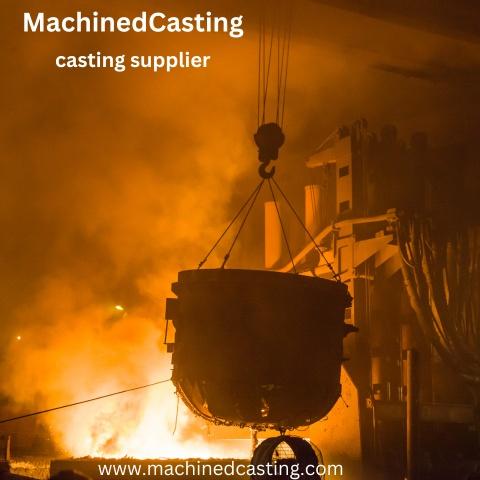Casting is a critical process in manufacturing, allowing for the creation of complex shapes and components with high precision. Choosing the right casting supplier is essential for ensuring the quality, reliability, and cost-effectiveness of your production process. In this guide, we'll navigate through the considerations and steps involved in selecting the perfect casting partner for your specific requirements.
-
Define Your Needs: Before diving into the search for a casting supplier, it's crucial to have a clear understanding of your project requirements. Determine the type of casting method needed (e.g., sand casting, investment casting, die casting) based on factors like material, complexity, and volume. Outline your quality standards, budget constraints, and delivery timelines to communicate effectively with potential suppliers.
-
Research Potential Suppliers: Start by compiling a list of casting suppliers through online research, industry directories, trade shows, and referrals from colleagues or industry contacts. Evaluate each supplier based on their expertise, experience, reputation, and track record. Look for certifications such as ISO standards, which indicate adherence to quality management systems.
-
Assess Capabilities and Facilities: Once you've narrowed down your list, delve deeper into each supplier's capabilities and facilities. Consider factors like production capacity, equipment quality, technological capabilities, and quality control measures. A visit to the supplier's facilities can provide valuable insights into their operations, infrastructure, and adherence to industry best practices.
-
Quality Assurance: Quality is paramount in casting processes to ensure consistency, precision, and reliability of the final products. Inquire about the supplier's quality assurance procedures, inspection methodologies, and certifications. Look for suppliers who prioritize quality at every stage of the casting process, from material selection to finishing and packaging.
-
Cost and Pricing: While cost is a significant consideration, it shouldn't be the sole determining factor. Evaluate pricing proposals from different suppliers based on a comprehensive understanding of their capabilities, quality standards, and value-added services. Consider the total cost of ownership, including factors like lead times, delivery schedules, and after-sales support.
-
Communication and Collaboration: Effective communication is essential for establishing a successful partnership with your casting supplier. Choose a supplier who demonstrates responsiveness, transparency, and willingness to collaborate closely throughout the project lifecycle. Clear communication channels and regular updates foster trust, mitigate risks, and ensure alignment with your objectives.
-
Flexibility and Adaptability: In today's dynamic market environment, flexibility and adaptability are critical attributes for casting suppliers. Look for partners who can accommodate changes in design, specifications, or production volumes without compromising quality or timelines. A flexible supplier can help you navigate unforeseen challenges and optimize your manufacturing processes.
-
Long-Term Relationship: Building a long-term relationship with your casting supplier offers numerous benefits, including cost savings, process efficiencies, and innovation opportunities. Prioritize suppliers who demonstrate a commitment to partnership, continuous improvement, and mutual growth. Invest in fostering strong relationships based on trust, respect, and shared goals.
Conclusion: Finding the right casting supplier requires careful consideration of various factors, from technical capabilities and quality standards to communication and collaboration. By following this guide and conducting thorough research and evaluation, you can identify a reliable partner who meets your specific manufacturing needs and contributes to the success of your projects. Remember, the journey to finding the perfect casting supplier is as important as the destination itself.

